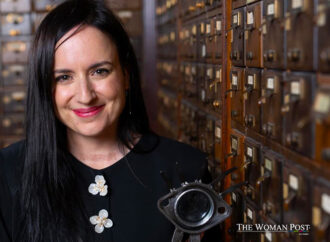Achieving a more equal society is related to men's desire to help build a new reality with women. This concept is known as new masculinities, which go beyond traditional masculinity and explores alternative ways of being a man.
According to the Spanish website FAD Planeta Joven, "new masculinities" are not new, and it is more appropriate to talk about "egalitarian masculinities" as a way to understand what it means to be a man "from a healthier and more egalitarian perspective in terms of relating to others and oneself. It proposes rethinking the traditional idea of masculinity and unlearning the gender roles that both men and women acquire from childhood."
Read more content like this at: thewomanpost.com
This perspective challenges the notion of "being a man" and seeks new ways of relating to others without competition, creating space to express vulnerabilities and emotions without fear. Most importantly, it aims to eliminate aggression and violence in all its forms to put an end to machismo.
"The new models advocate breaking the learned gender roles associated with masculinity and femininity. It means abandoning the idea that men don't cry, men don't care, or men always have to be strong and hide their weaknesses. It is important to overcome these ideas so that men can be freer and more accountable in their family and personal lives," the website expresses.
As a result, this model has been incorporated into the implementation of public policies that embrace a gender perspective.
Masculinity for Equality
José Ignacio Pichardo, a professor at the Department of Social Anthropology and Social Psychology at the Complutense University of Madrid, shared in an interview with Amnesty International's website that, in his experience supporting the creation of the program "Masculinity for Equality" by the Spanish Ministry of Equality, they found that the work needed to focus on various aspects: recognizing gender mandates and their impact on masculinity, creating spaces to address men involved in gender-based violence, and applying the perspective of new masculinities to other institutional programs. This was supported by awareness campaigns using artistic, cultural, or communicational productions.
"To be able to repair, we must recognize the violence and harm, and in most cases, we find that men do not acknowledge the harm they have caused. We believe that the first step toward a reparative policy is recognition and taking responsibility for the violence perpetrated. However, the most important reparative policy is non-recidivism. These spaces allow for the erosion of complicity among men, shaping active individuals who promote, multiply, and intervene. It also allows us to begin thinking about a communal reparation where these men can bring the lessons from feminism to spaces of male sociability," he said.
The Spanish experience, which serves as a model for governments in Latin America, represents practices that have been adopted in several countries in the region. This goes beyond the creation of Ministries of Equality and extends to campaigns that seek to change cultural structures.
"We are in a paradoxical process where many young people have approached feminism, but this process is not linear and has an anti-feminist reaction."
Public Policy
Therefore, the challenge in public policy must go beyond traditional figures to avoid being "trans-exclusive." "Alliance policies among feminist individuals must be constructed and consolidated based on our agreements, not on returning to genital sexual difference as the boundary for our alliances," the expert emphasized.
While the path towards an egalitarian society is still under construction, there is still work to be done to transform cultural models that embrace a valued and respected new masculinity, one that promotes equality and relationships among equals.
You can also read Companies Must Change Their Schemes
"Traditional masculinity limits us by suggesting that there is only one way to be a man. And that is an unattainable type of man: always strong, confident, brave, decisive, successful, a leader, and devoid of emotions… No man is entirely like that. Traditional masculinity is inherently toxic because it is unreal, and it makes us feel dissatisfied. I encourage men to reflect on whether well-being is achieved by conforming to the role of traditional masculinity or by exploring forbidden ways of being that face strong social censorship," he added.

























Leave a Comment
Your email address will not be published. Required fields are marked with *